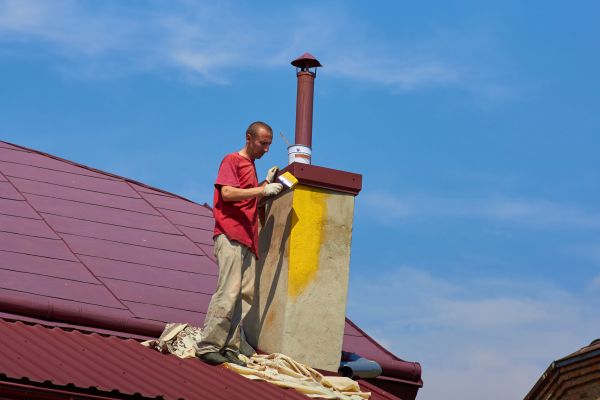
Chimney Waterproofing
- Prevents Water Damage: Chimney waterproofing creates a barrier that stops rain, snow, and moisture from penetrating the brick and mortar. This prevents cracks, leaks, and interior water stains.
- Extends Chimney Lifespan: By protecting against freeze-thaw cycles, waterproofing reduces long-term deterioration and keeps your chimney structurally sound for decades.
- Stops Mold and Mildew Growth: Moisture intrusion can lead to mold and mildew inside the chimney and home. A waterproof sealant eliminates this risk and protects indoor air quality.
- Maintains Structural Safety: Saturated masonry weakens over time and can cause partial collapses. Waterproofing ensures the chimney remains safe and stable.
- Reduces Repair Costs: Preventing water entry saves homeowners from costly repairs such as tuckpointing, crown rebuilding, or interior damage restoration.
- Preserves Energy Efficiency: A properly sealed chimney prevents air leaks and helps maintain consistent heating and cooling inside the home.
FAQ for Chimney Waterproofing
Q: What is chimney waterproofing?
It is the application of protective sealants to the exterior chimney masonry to keep water from penetrating and causing damage.
Q: Why is chimney waterproofing important?
It prevents water intrusion, which is one of the leading causes of chimney deterioration and structural damage.
Q: How long does chimney waterproofing last?
Professional waterproofing treatments typically last several years and can be renewed as needed for continued protection.
Q: What happens if I don’t waterproof my chimney?
Unprotected chimneys absorb water, leading to cracks, spalling bricks, leaks, and even interior mold issues.
Q: Can waterproofing be applied to all chimneys?
Yes, but the chimney should be inspected first to ensure existing damage is repaired before applying the sealant.